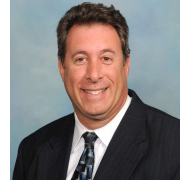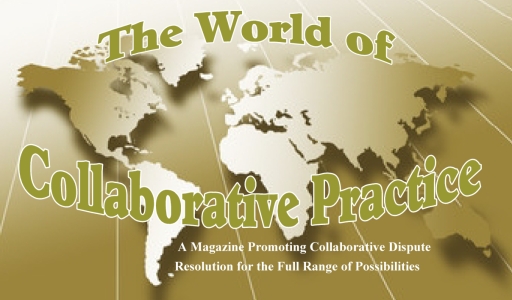
Tags
Related Posts
Share This
Be Careful About How You Choose to Divorce: Part 2
In my previous article I introduced an exciting and much needed approach to divorce called Collaborative Divorce. I discussed how the process of Collaborative divorce empowers the divorcing couple by allowing them to structure their own divorce with the assistance of trained professionals (Financial, Mental Health, and Attorneys) whose sole job is to settle the case without having to go to court. I pointed out that this process is faster, cheaper and much less traumatic on the divorcing couple and their children by providing a ‘safe’ environment where everyone maintains respect, honesty and dignity.
I also asked the rhetorical question as to why, after learning about Collaborative Divorce, would anyone purposefully choose the litigious and adversarial way to divorce “knowing that the ultimate result could devastate them and oftentimes number their children among the casualties?”
The answer to this question is multi-faceted. First and foremost, divorce, especially after many years of marriage, oftentimes is accompanied by many different and conflicting emotions. We may experience emotions such as shock, the denial of the reality, frustration, sadness, resentment, guilt, hatred, anxiety, self-pity, the sense of failure or rejection, loneliness, and the everything-seems-out-of-control and will-this-divorce-ever-end feelings. Life long assets need to be preserved, children may need protection, and the uncertainty of what questions to even ask may leave you feeling incredibly vulnerable. Unfortunately, this situation leaves the average divorcing person open to manipulation by a family law system that is designed, and procedurally structured to be highly complex for the lay person to understand and be able to navigate through, adversarial from the very start, condoning, and ultimately allowing for its own abuse by litigating Attorneys who, quite simply put, oftentimes take full advantage of the opportunity afforded to them under the legal obligation of judicial privilege by being a ‘zealous advocate’ for their client.
Unfortunately, our family law courts, where divorce is concerned, have structured themselves to become a wasteful, dog eat dog, survival of the fittest boxing ring where peoples hard earned wealth is used to the advantage of perpetuating an abusive system of law. The divorcing individual, whose only ‘crime’ was ultimately marrying the wrong person, oftentimes is treated in the same manner as a hardened criminal and/or a potential threat to society by being sentenced with a ‘permanent’ order as if they committed a capital crime; And once forced in this system, its nearly impossible to escape.
The true irony of this is that lawyers have historically been responsible for preventing battle and peaceably resolving disputes. John W. Allen, in his October 2001 Bar Journal article, notes that in the early 12th century, Henry II systemized earlier experiments of his grandfather, Henry I, by sending his “Court” of traveling justices on regular circuits through his realm in order to substitute the peaceful resolution of disputes for the traditional method of “trial by battle.” 1The advocates who emerged to represent those appearing at the local court were intended to resolve disputes and not fan them.
Warren Earl Burger, the longest serving Chief Justice of the highest court in the land, was a critic of litigiousness. In addressing the American Bar Association in 1984, Justice Burger declared, “Our system is too costly, too painful, too destructive, too inefficient for a truly civilized people. To rely on the adversary process as the principal means of resolving conflicting claims is a mistake that must be corrected.”2
Chicago attorney turned Notre Dame Law School Dean, turned Catholic Priest, David T. Link stated that somewhere along the line, lawyers as a group began straying from their original duty as peacemakers.3 Reverend Link was honored with the American Inns of Court’s 2009 Professionalism Award for the Seventh Circuit at the Seventh Circuit Judicial Conference in Indianapolis for his life-long demonstration of character and integrity in the legal profession. In receiving this award, Reverend Link commented: “The ultimate goal of a lawyer is not to “win” but to achieve justice and healing. Just as a doctor can treat or cure a patient without bringing about healing, so, too, can a lawyer win a lawsuit without healing his or her client. And just as a patient can be healed by a doctor even though his or her disease remains uncured, so, too, can the client of a lawyer be healed even if the client’s problem can’t be cured.”
Let there be no doubt that divorce in the United States is a multi-billion dollar business that seems to provide job security to many legal professionals. Unfortunately, in the context of adversarial divorce, the families are not provided the same security. Second, irrational and emotional clients who cannot see the forest through the trees and who just want revenge and retribution from an aching heart, selfish in their thoughts and deeds, typically hire attorneys who are more than willing to try to give these clients what they ask for. Unfortunately, the area between what is legally correct, and what is morally and ethically correct remains open to interpretation and therefore allows for manipulation by opportunistic individuals in the field. Third and lastly, representatives who we elect to protect our rights and create laws that are fair and just, are the same legislators whose campaigns are oftentimes funded by the wealth created by this adversarial process of litigation. This allows for laws to be passed that are not necessarily correct for the individual, but instead for a self-serving, and broken family law system. We, as a civilized society must not allow this to continue because families and the lives of our children and future generations are at stake.
Now more than ever lawyers are challenged to accept that it is time for lawyers to reclaim their original roles as peacemakers, healers and problem-solvers. The Collaborative Process of Divorce allows for this role to occur by empowering the divorcing couple and by not allowing any of the professionals involved to claim control of the process. Information is shared among the professionals and clients alike. Questions are asked and answers are given. Litigation and the financial and emotional wastefulness associated with litigation are avoided. Most importantly, Collaborative Divorce keeps divorcing decisions where they should be…among those intricately involved with the divorce who will have to live with the consequences and certainly out of the less involved, wasteful destruction of the courts.
***************
1 “Lawyers as Healers; Feel Better about yourself and the law through six simple suggestions.”Indiana Bar Journal, Res Gestae, (March 2001), John W Allen.
2 Civil Justice Reform in the United States-Opportunity for Learning from ‘Civilized’ European Procedure Instead of Continued Isolation? Ernst C. Stiefel and James R. Maxeiner The American Journal of Comparative Law, Vol. 42, No. 1 (Winter, 1994), pp. 147-162
3 “Divorce Law’s Changing Attitude” March 15, 2010, Florida Law Journal, by Brooke Deratany Goldfarb









Share your thoughts here and in your network.